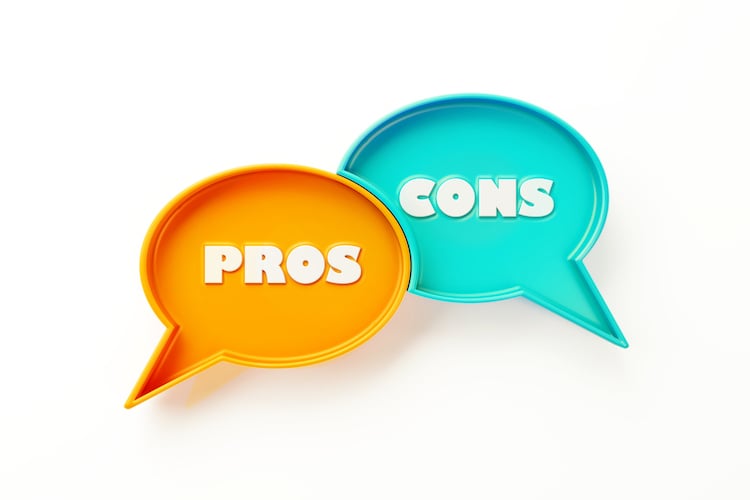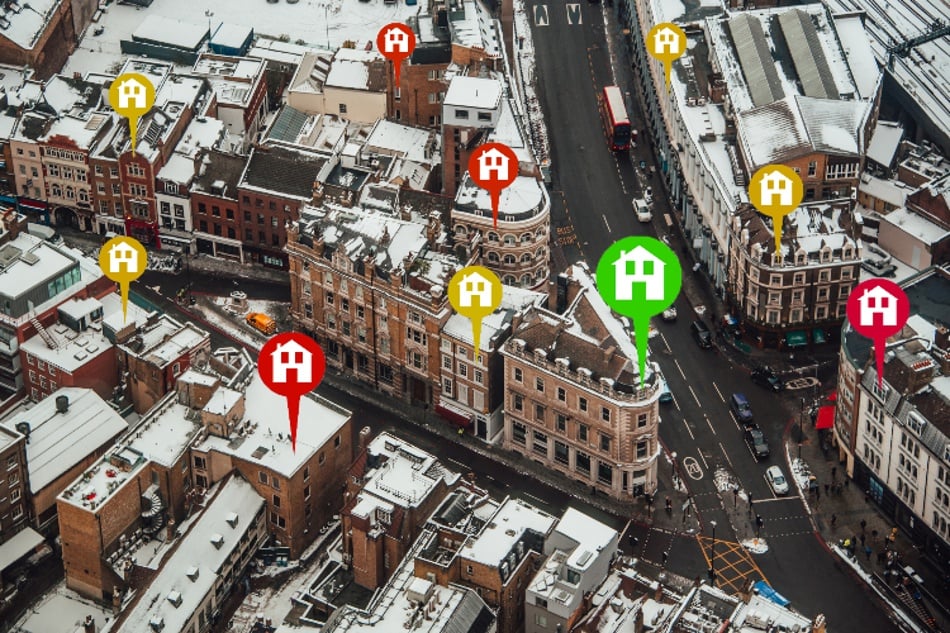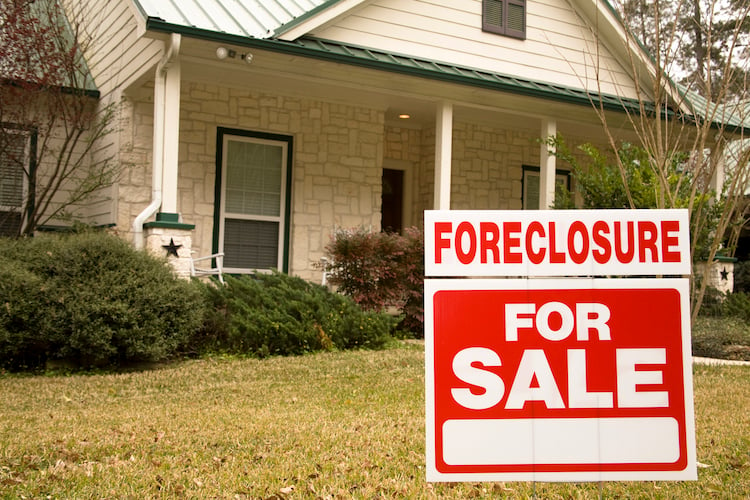There are dozens of ways to invest in real estate, including owning homes directly, buying property shares of a home, or investing in a REIT. However, one of the most overlooked ways to get into the business is with wholesale real estate.
Although it requires a real estate license in many states, wholesaling real estate may be a good opportunity for investors who don’t have a lot of cash, but who are willing to put in the time and effort and accept a certain amount of risk in exchange for potentially high rewards.
Key takeaways
- Real estate wholesalers locate motivated sellers with distressed property, put the home under contract, then assign the contract to another real estate investor.
- Wholesale real estate requires little cash to get started because the wholesaler does not take possession of the property.
- Wholesaling real estate offers the potential to generate large profits over short periods of time.
- Wholesalers make money by receiving a wholesale fee when the contract is assigned or when the deal closes escrow.
What is wholesale real estate?
Wholesale real estate is distressed property that is put under contract by one real estate investor, then assigned or transferred to another investor.
Real estate wholesalers are experts at finding owners that are motivated to sell – such as homeowners facing foreclosure, people with property needing a lot of repair, or owners of neglected inherited property.
Real estate wholesaling is a short-term investing strategy that some investors use to generate potentially large profits and quick cash over a short period of time. Unlike fixing-and-flipping property, a real estate wholesaler does not want to actually close escrow and take possession of the property and spend money making repairs.
A real estate wholesaler:
- Estimates the after repair value (ARV) of the property and the cost of repairs.
- Makes an offer to the owner at a price below market value.
- Ties up the home in a purchase contract with a small earnest money deposit.
- Assigns the purchase contract to another investor to close on the deal.
- Receives a wholesale fee for finding a below-market deal and accurately estimating the cost of repairs.
How real estate wholesalers make money
Investors who don’t have a lot of money for a traditional 25% down payment are often attracted to real estate wholesaling. That’s because a distressed home can normally be put under contract for a small earnest money deposit, usually less than 1% of the purchase price.
The wholesale fee received when the real estate contract is assigned to another investor varies based on the wholesaler and the specific property, but might range between $5,000 and $10,000 or between 5% and 10% of the property value.
Although there is the possibility of making a lot of money with wholesale real estate, there is a high level of risk as well.
For example, if the wholesaler can’t find another investor to assign the contract to, the wholesaler has to come up with the cash or financing to close on the property, or walk away from the deal and lose the earnest money deposit.
Also, real estate wholesaling isn’t as easy as it might seem at first glance.
Within a short period of time, a successful wholesaler has to:
- Locate motivated homeowners who are willing to sell for much less than the property is worth.
- Accurately estimate the amount of repairs and updating needed.
- Find another investor to assign the purchase contract to who has the money and expertise to make the needed repairs and still turn a profit.
However, for buy-and-hold real estate investors, purchasing wholesale real estate may be a good way to find off-market properties at an attractive price.
With the right wholesale opportunities, an investor willing to take over the purchase contract and pay a fee to the wholesaler could end up with a property with instant equity, even after all repairs and updating have been done.
How to wholesale real estate in 6 steps
Wholesale real estate can be a good way for people with strong negotiating and networking skills to get into the real estate business.
The process of wholesaling real estate requires a lot of time spent researching, making connections, and putting a deal together, but does not require a lot of money. Because some states require a license to wholesale real estate, investors should check the laws of their jurisdiction first.
Here are the six steps to follow to wholesale real estate.
1. Locate a distressed property and motivated seller
The wholesale real estate business revolves around the concept of buying low and selling high. While not every owner is willing to sell a home at a below market price, sometimes owners of distressed real estate are.
For example, homeowners facing foreclosure may be willing to sell for less than what the house is worth because they lack the time or resources to market the home for top dollar.
People who inherit real estate can also be good sources for finding below-market deals. Heirs often live in a different state from where the property is located and don’t know or aren’t interested in remote real estate investing. Also, inherited property may be transferred free and clear of any mortgage debt, with some heirs more than willing to turn an unwanted home into cold, hard cash.
Other ways to find real estate to wholesale include:
- Visit real estate auction websites like Auction.com and Hubzu.
- Participate in local real estate investment and wholesale groups.
- Search for probate real estate by going to the probate court or the county clerk and looking for estates that have real property in them .
- Use the best foreclosure sites such as HomePath, HomeSteps, and the Zillow Foreclosure Center.
- Hire a real estate bird dog to drive for dollars and scour the market looking for signs a home is in distress, such as an unkept front yard, and broken windows or peeling paint.
- Advertise with small “bandit signs” near major intersections and freeway off-ramps with large lettering that says, “We Buy Houses” with a local phone number.
2. Determine ARV and MAO
Once a motivated seller with a distressed property has been located, a real estate wholesaler needs to make sure that the deal makes financial sense. Afterall, the investor that the purchase contract is being assigned to wants to make sure they are getting a home priced below market, otherwise why pay the wholesaler a fee?
There are two calculations used with wholesale real estate to identify the best potential opportunities:
- ARV (after repair value) is the fair market value of the home after all repairs and updating have been made. In order to accurately estimate ARV, a real estate wholesaler needs to understand the local real estate market, know what buy-and-hold investors are looking for, and correctly calculate the cost of repairs.
- MAO (maximum allowable offer) is the highest offer a real estate wholesaler can make to a distressed seller, while still earning a profit and providing the investor the purchase contract is assigned with a below market priced property.
Let’s look at a simple example of how a real estate wholesaler uses ARV and MAO.
Assume that the wholesaler is working a neighborhood where good single-family rental homes are selling for $150,000. The wholesaler finds a home titled to an out-of-state owner.
After determining that the property requires $17,000 in repairs to make the home habitable and useable for a rental, the real estate wholesaler determines that the maximum allowable offer or MAO is $88,000:
- MAO = (ARV x 70%) – Repair Costs
- ($150,000 after repair value x 70%) = $105,000 - $17,000 repair costs = $88,000 MAO
In this example, the real estate wholesaler is following the 70% rule, which means that the wholesaler will not pay more than 70% of the home’s fair market value, minus the cost of repairs. In other words, the wholesaler is creating a profit margin of 30% after repairs have been made.
However, the potential profit of $45,000 ($150,000 ARV x 30%) doesn’t completely go to the wholesaler.
Part of the profit margin is used to pay the wholesaler. Another part of the profit is used as a negotiating tool with the buyer/investor (more on that in a minute). The remaining profit is set aside and used as a margin for error in case the wholesaler underestimates the cost of required repairs.
3. Negotiate and put the property under contract
One of the most difficult parts of wholesale real estate is convincing the homeowner to sell the property for less than it is worth. This is where the art of putting together a wholesale deal comes into play.
The best real estate wholesalers understand effective negotiating strategies and tactics by zeroing in on what a seller’s hot buttons and motivation are.
Some common methods wholesalers use to negotiate and put a property under contract at a price that’s below market include:
- Make a connection with the seller by being respectful and empathetic
- Waive as many purchase contract contingencies as possible by making an as-is offer with a quick close of escrow and paying for the seller’s closing costs
- Focus on the benefits the seller will have by not being burdened with the home, like having cash in hand and being free from the costs of owning an unwanted house
- Offer to purchase the appliances and furniture in the home to save the seller the time and trouble of holding a yard sale or moving things into storage
- Mention that the real estate market always moves in cycles, and that home prices historically go down as well as up
- Point out defects in the home and the high cost of making repairs and updates to prepare the home for listing on the MLS by a real estate agent
- Show disinterest or hesitation when negotiating with a distressed seller
- Be comfortable with staying quiet and allowing the seller to make the first move or raise objections
- Be willing to walk away if the seller doesn’t agree to the maximum allowable offer
Once an agreement is reached, the property is tied up or put under contract with a clause that allows the wholesaler to assign the contract to another party.
For example, the purchase contract might name the buyer as “Joe Smith and/or assignee.” Of course, real estate wholesalers check with their real estate attorney for guidance on creating a purchase contract for wholesale real estate.
4. Locate an investor to assign the contract to
The fourth step in wholesale real estate is to find another investor to assign the contract to, close escrow, and make the repairs estimated by the wholesaler. Unlike a traditional buy-and-hold investor or a real estate fixer-and-flipper, a real estate wholesaler does not want to close on the transaction.
A wholesaler usually doesn’t have a lot of time to assign the contract. If the purchase contract has a closing date 30 days from the time the contract is signed, the wholesaler must find a buyer/investor to assign the contract to in less than 30 days.
Many real estate wholesalers who have been in the business for a while already have a go-to buyers list of qualified investors to assign the wholesale purchase contract to. In fact, for some buy-and-hold real estate investors, working with wholesalers in different markets can be a good way to find off-market deals at an attractive purchase price.
Other times a wholesaler will look for an investor to assign the contract to. Some common and cost-effective ways to locate a buyer for wholesale real estate include:
- Reaching out to people met at a real estate networking event or meetup.
- Listing the property on a local real estate investing Facebook group.
- Touching base with local property management companies to learn if they have owners interested in buying a rental property at an attractive price.
- Contacting an investor-friendly real estate agent to see if they have a client interest in purchasing a wholesale property.
- Speaking with mortgage brokers and hard money lenders in the local market who provide financing to real estate investors to see if they have clients interested in buying.
- Attending auctions and presenting the wholesale deal to potential buyers to save them the time and trouble of competing with other bidders for a home being auctioned off.
5. Negotiate with the buyer/investor
Once a buyer/investor has been located to assign the contract to, the parties have to agree to terms and conditions.
The real estate wholesaler wants to be compensated for the time and effort locating a distressed property and putting the home under contract. On the other hand, the buyer/investor wants to purchase a wholesale home that offers instant equity even after all of the repairs have been made.
To illustrate how a negotiation between a real estate wholesaler and another investor might work, let’s go back to our earlier example.
Recall that the wholesaler put a home with an ARV of $150,000 under contract for $88,000. The spread between the after repair value and the contract purchase price is $62,000 ($150,000 ARV - $88,000 purchase price).
Out of that $62,000 the estimated repair costs are $17,000, which means the wholesaler and the buyer/investor need to negotiate how the remaining $45,000 is shared.
One possible way to negotiate the agreement is to split the difference, with the wholesaler taking a fee of $22,500 and the investor the contract is assigned to receiving the home at a price that’s $22,500 below market (after all of the repairs have been made).
Or, the wholesaler could ask for a fixed wholesale fee of 10% of the ARV, or $15,000. In that case, the investor would receive a wholesale property that is $30,000 below fair market value.
In the wholesale real estate business, different properties attract different buyers, and every negotiation is different. However, a real estate wholesaler who does not exceed the MAO or maximum allowable offer may have plenty of room to negotiate a win-win deal with the investor the wholesale home is assigned to.
6. Close on the wholesale property
Closing on wholesale real estate works the same way as a traditional real estate closing does. Depending on the local real estate market, a closing may take place at the office of a real estate attorney,title company, or escrow agent or virtually.
The closing costs are paid by the buyer and seller as agreed to in the purchase contract, the buyer purchase funds are received from the buyer in the form of cash or a new first loan or hard money loan, and title is transferred to the buyer or the buyer’s S-Corp or LLC.
Many investor-friendly title companies offer an investor discount on closing fees, although they will normally need to be asked for the savings.
Where to find real estate to wholesale
Finding the best wholesale real estate deals can take a lot of time and effort. But as with most businesses, the more transactions that a real estate wholesaler does, the easier it can become to find good wholesale deals that make sense.
Some of the best places to look for real estate to wholesale that we didn’t mention above include:
- Networking at local real estate investor and wholesale meetings.
- Connecting with an investor-friendly real estate agent who may have pocket listings.
- Using direct mail campaigns and small bandit signs to let distressed homeowners know they can sell fast and receive cash.
- Contact probate attorneys, attend probate court, or check with the county clerk for estates that have homes or other types of real estate in them.

Pros and cons of wholesaling real estate
There are pros and cons to every real estate investing strategy, and wholesaling real estate is no exception. Here are some of the things to be aware of before starting a wholesale real estate business:
Pros
- Wholesale real estate can be a good way for beginning investors to learn the business.
- Real estate wholesaling requires little capital to get started.
- Potential to quickly earn profits in short periods of time.
- Virtual real estate wholesaling can be done in any real estate market by looking for distressed property online.
Cons
- In some jurisdictions, you'll need a real estate license.
- Finding motivated sellers with distressed property and negotiating a purchase contract can take a tremendous amount of time.
- Not finding a buyer to assign the purchase contract can result in the wholesaler having to close on the property, or walking away from the deal and losing the earnest money.
- Income from real estate wholesaling can be unpredictable when compared to income generated by buy-and-hold real estate investors.
Final thoughts on this topic
In many real estate markets today, there are more buyers looking for property than there are homes available for sale. Real estate wholesalers fill a need investors have by locating motivated sellers with distressed property and putting a deal together, then assigning the purchase to buy-and-hold investors. While real estate wholesaling does involve some risk, there’s also the potential to make healthy profits for people willing to put in the time and effort to learn the wholesale real estate business.










